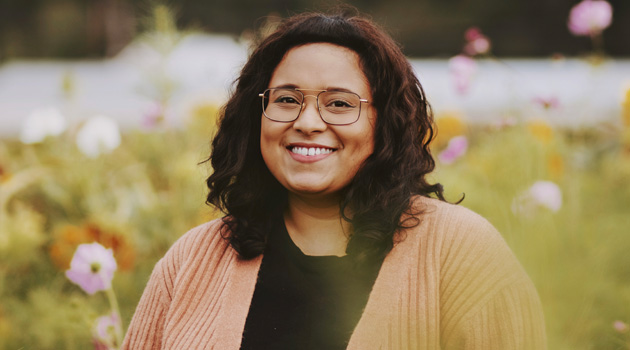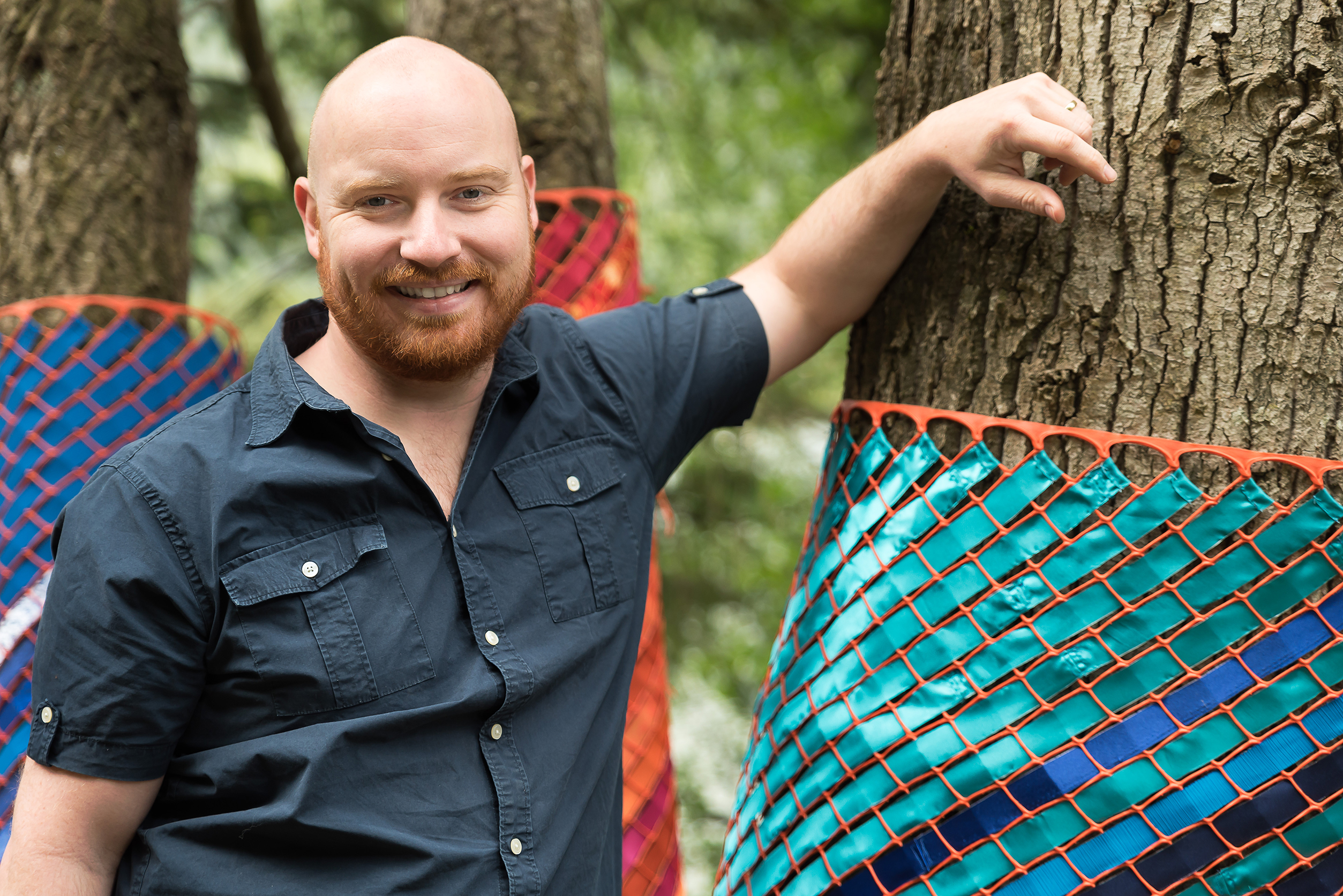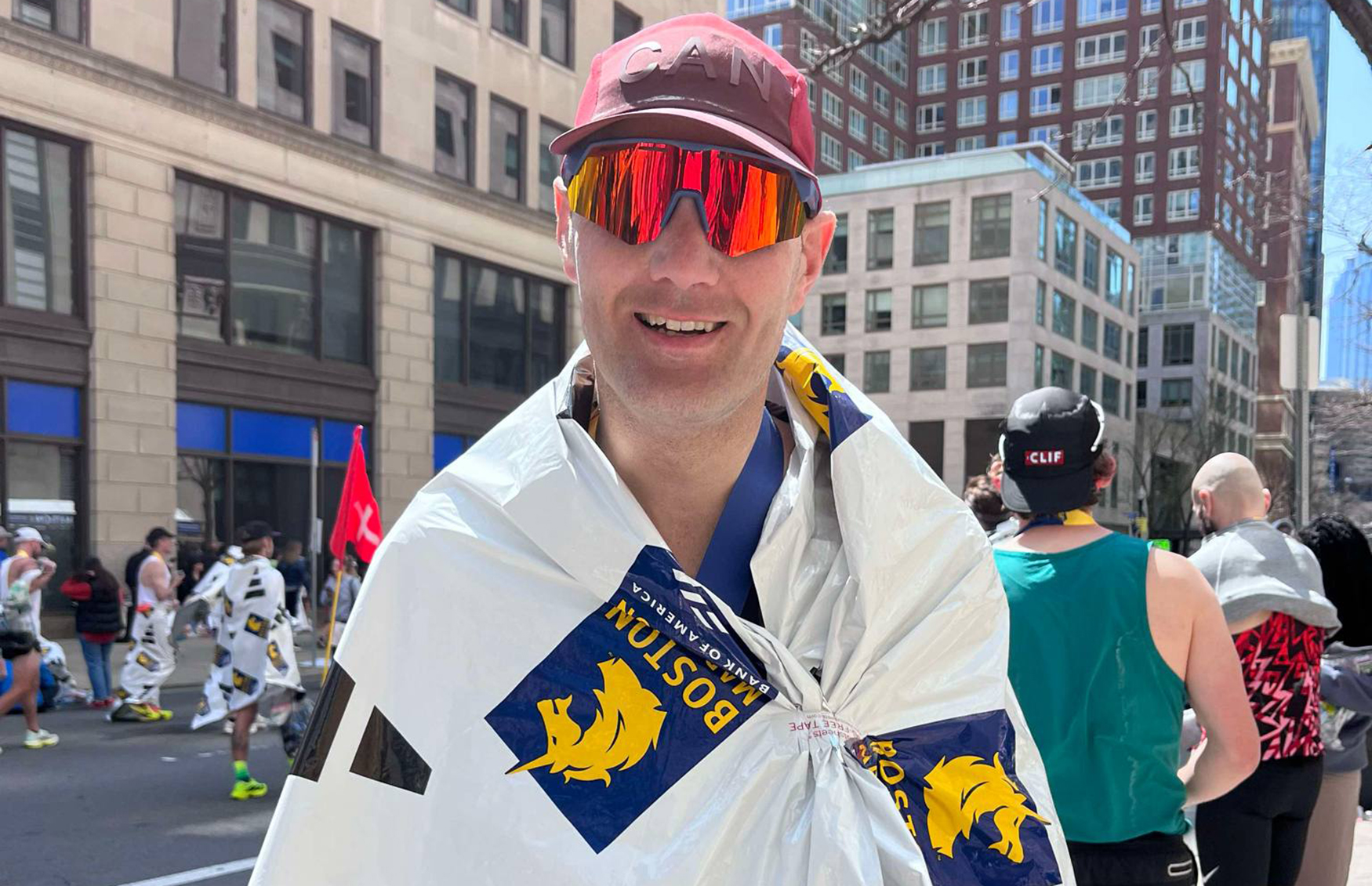Pahladsingh wins BMO 1st Art! award

When Shannon Pahladsingh (stylized as “shannon pahladsingh”) (BFA ’21), reclaimed her experiences of racism into philosophy and political science research essays, she never expected the ordeal to transform into an award-winning, and nationally recognized spoken word poem.
Performed by shannon pahladsingh for her capstone Bachelor of Fine Arts project, her spoken word poem oh, thank goodness has won her a national award. She was selected as the British Columbia winner for the BMO 1st Art! competition, which celebrates the creativity of art school students from over 100 post-secondary institutions across Canada. Pahladsingh graduated with her BFA in June 2021.
https://www.youtube.com/watch?v=FVAbz0CTq-c
From a long journey of immigration, pahladsingh is of Indo-Caribbean heritage, with roots in Suriname, and ancestors from Bihar, India. She has constantly been on the move, having lived in New York, Georgia, Ontario, Saskatchewan, and Suriname. pahladsingh expertly integrates her experience of immigration in her performance, while speaking to a larger issue of covert racism.
Oh, thank goodness confronts the harm of covert racism that pahladsingh and many other Indigenous, Black, or people of colour (IBPOC) experience in academic institutions. pahladsingh defines covert racism as “a disguised form of ‘socially acceptable’ discrimination that perpetuates bias towards Indigenous, Black, and people of colour. Because of its disguised nature, perpetrators are often given the privilege of denying responsibility for the harm caused, while retaining their status or power.”
During her performance, pahladsingh recalls a specific experience of covert racism, where her identity as a queer, nonbinary person of colour was exploited, objectified, and minimized. She places a seemingly innocent sentence against the context of workplace equity criteria, saying she felt like “a token, an object, a coloured check, a white box for what i’m not”.
While pahladsingh has been privately writing poetry since she was young, her creative practice has largely revolved around dry media, such as graphite, and charcoal pieces. pahladsingh describes the moment she decided to bring her poetry into her public practice:
My art practice is usually very political and centred on social justice. I was reflecting on this experience I had just gone through that was still hurtful after so many years. My poem examines why it hurts, and helps me work through the emotions I was feeling.
I was venting about the experience in the shower and it suddenly struck me that I was forming my thoughts in a very poetic form. I realized that telling my story in this way was something I needed to play with and explore. I emailed my professor and said I was no longer going to do a dry media piece for my capstone project. I was going to perform a spoken word poem.
Pahladsingh deliberately wrote oh, thank goodness to centre an audience of IBPOC, and intentionally does not publish the poem in text format (save for accessibility reasons).
As a written poem, the reader has autonomy to interpret it as they want to. By using story-telling, my voice physically fills the space and my experience is not left to the interpretation of the viewer. My words are wholly concrete, final, and mine.
This poem brings my community together to invite conversation about our experiences in a way that we feel heard and supported. When IBPOC tell their story, it creates a moment of human connection. Since releasing the poem, some folks have told me that my performance pushed them to tell their own story. They felt that their pain had been validated, and were inspired to move forward.
Oh, thank goodness immediately begins with the microaggression pahladsingh experienced, framing her feelings abuse. Through her performance, she reclaims the comment, “oh! thank goodness, you’re so diverse!” by showing gratitude to her maternal ancestors, saying “thank goodness you were so adverse.” By the end of her performance, she is in a place of power.
“I hope my poem continues to make people with similar experiences feel valid. That when something gives you a sticky, gross feeling, the harm you feel is real and is deserving of healing.”
As for winning the award? She appreciates the accolades and the funding that comes with it. She has donated a portion of her winnings to the Moose Hide Foundation, acknowledging that she is a settler on this land who has performed this poem on the beautiful backdrop of S’ólh Téméxw. pahladsingh encourages others to donate what they can to the foundation, who works to address gender based violence.
“I was working from home when I heard that I won. I couldn’t believe it. It was very surreal. I never expected to win. I felt so grateful, especially after hearing what the judges had to say.”
Pahladsingh attended UFV from 2011 to 2021, completing coursework in philosophy and political science in addition to her visual arts major and graphic design minor. She also worked for the UFV-SUS Food Bank and completed work-study terms for the photography and print media programs. She found a home with the UFV Race and Anti-racism Network (RAN).
“RAN was a turning point for me. I found a space and community that felt like it was for me, where I could speak freely and be supported about my experiences. I strongly encourage people who experience racialized harm to find support through RAN,” she notes.
Pahladsingh now works as a Student Transition and Engagement coordinator for UFV Student Life, using her creative skills and anti-oppression knowledge for anti-racist marketing and communications. She was a key team member in branding and transitioning Student Orientation to an online platform during the pandemic.
“I find my work with Student Life really fulfilling. I am using my knowledge and education in anti-racism to address gaps that students of colour might feel. I hope that this poem and my continued voice in the fight against racism and oppression, can help people tell their story in a way that is loud, takes up space, and is completely theirs.”
This story was created cooperatively by Shannon Pahladsingh and Anne Russell.




